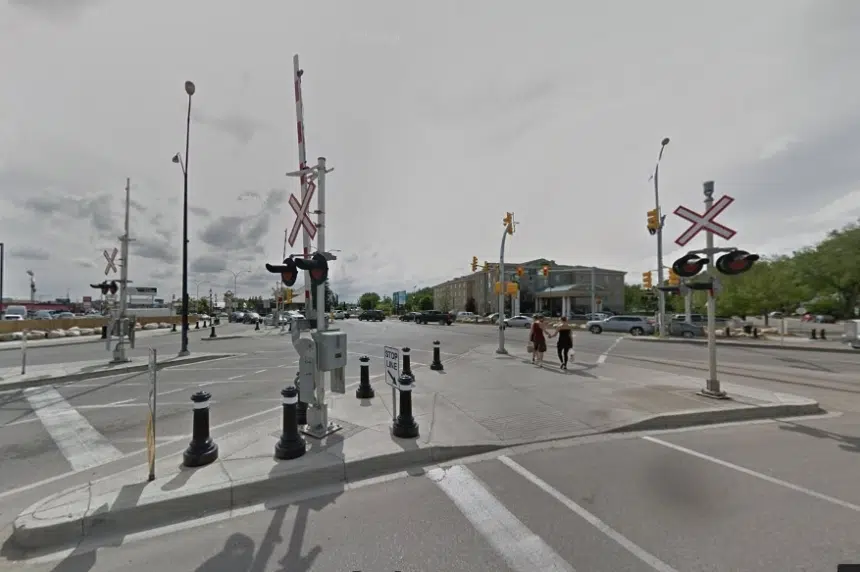Saskatoon Mayor Charlie Clark isn’t banking on the idea of completely removing rail lines from the city – at least, not without looking at other ways to spare change.
“I’ve never heard any (estimate) less than $1 billion – some said $2 billion – to move those lines out of town,” Clark said on The Brent Loucks Show Tuesday.
In July, former mayor Don Atchison dropped a hint that local businesses were looking into doing something about the lines – considering everything from rail line relocation to land development.
Last week, the Saskatoon Regional Economic Development Authority (SREDA) released results of a study finding the local economy loses $2.5 million of Gross Domestic Product per year as a result of traffic delays at nine major rail crossings in the city.
“That’s the challenge that we’re in. We’ve identified the issues of safety and traffic flow in some of our intersections in our city,” Clark noted.
In a report submitted to council Monday, two intersections were highlighted as the most disruptive: 22nd Street and Avenue F, and Idylwyld Drive and 25th Street.
Clark said building infrastructure around the lines might be a faster – and cheaper – solution.
“It’ll take forever for us to actually move the lines out of town, but if we could do something with an overpass – that would be tasteful and work there, that would cost much less money – let’s not spend all our time studying, evaluating and talking about a billion-dollar solution.”
The mayor said the issue also impacts future public transportation options: running a bus rapid transit line down 22nd Street is simply ineffective when there’s a rail crossing.
“It creates a lot of unpredictability in the transit routes and timing,” he said.
“It’s not an easy thing putting an overpass or underpass in, but if we can do it – and it takes less time – I think we need to explore it seriously.”
Clark said there will be an answer within the year as to what the options are moving forward, based on the first phase of a feasibility study into rail line solutions.
A city report in March estimated the cost of that study at $400,000.











